Drumsheds isn’t a club you walk into for a drink and a beat. It’s the kind of place that changes how you think about live music. If you’ve only heard it described as a warehouse venue in East London, you’re missing the point. Drumsheds is where sound becomes physical, where the bass doesn’t just vibrate your eardrums-it rattles your ribs, shakes the floor under your feet, and lingers in your chest long after you’ve left.
It Started as a Warehouse, Became a Movement
Back in 2014, Drumsheds opened in a disused industrial building in Dalston, East London. No fancy lights, no VIP section, no bottle service. Just concrete, steel beams, and a massive sound system built by the team themselves. It wasn’t meant to be a nightclub. It was meant to be a space for music that didn’t fit anywhere else-hard techno, industrial, experimental bass, noise, and underground hip-hop. Bands from Berlin, Tokyo, and Glasgow showed up because they knew this was one of the few places that would let them play loud, raw, and unfiltered.
By 2017, it had become the go-to spot for artists pushing boundaries. No mainstream DJs. No corporate sponsors. Just a tight-knit community of sound engineers, producers, and listeners who cared more about the energy of the set than the name on the flyer. That’s when the real shift happened: people started showing up not just to dance, but to experience something they couldn’t get anywhere else.
The Sound System That Changed Everything
Most clubs use commercial sound systems designed for pop and EDM. Drumsheds doesn’t. Their setup is custom-built-four massive subwoofers, twelve mid-range speakers, and sixteen high-frequency drivers, all calibrated by hand. The system was designed by a former BBC audio engineer who spent years tweaking it to reproduce frequencies most venues can’t even touch. Below 30Hz? Drumsheds hits it. You feel it before you hear it.
There’s a story about a bassline from a 2022 set by Berlin artist Lina K. The track had a 17Hz pulse that vibrated the entire building. People reported feeling dizzy, then euphoric. One guy said he cried because he’d never felt music that deeply before. That’s not marketing. That’s physics meeting passion.
The system isn’t just for bass. Every frequency is balanced to preserve the original intent of the music. A live drum kit sounds like it’s being played in the room. A distorted guitar doesn’t just crunch-it explodes. You don’t just listen to music here. You inhabit it.
It’s Not About the Crowd. It’s About the Connection
Walk in on a Friday night and you’ll see a mix: students in hoodies, retired musicians in leather jackets, engineers in work boots, artists with paint-splattered jeans. No one’s there to be seen. No one’s checking their phone for likes. Everyone’s facing the stage, eyes closed, bodies moving without thinking.
There’s no dress code. No cover charge unless it’s a special event. And even then, it’s never more than £15. The door policy? If you’re respectful, you’re in. No bouncers checking IDs like they’re guarding a bank. Just a guy with a clipboard who asks, “You here for the music?” If you say yes, he nods and lets you through.
People talk about Drumsheds like it’s a secret. But it’s not. It’s just quiet. No Instagram influencers. No viral TikTok clips. The word spreads through word of mouth, through shared headphones, through someone saying, “You have to feel this.”
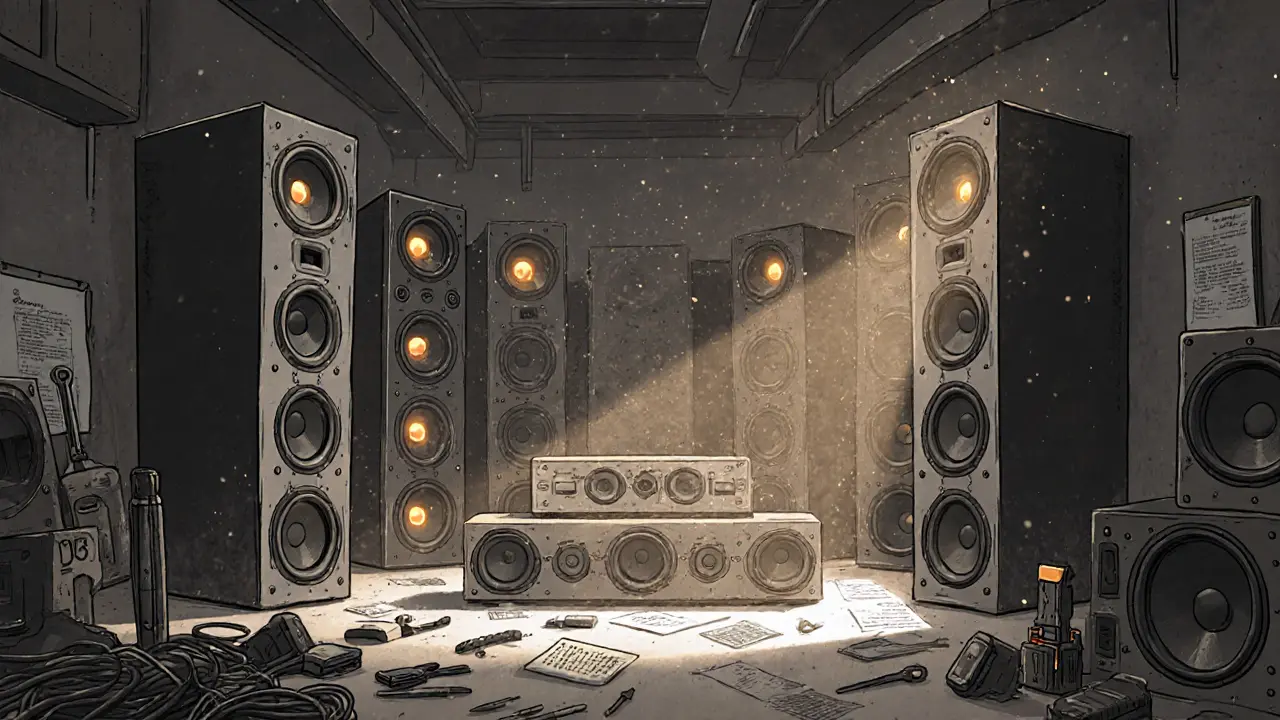
More Than Music: A Cultural Hub
Drumsheds doesn’t just host gigs. It hosts workshops. Film nights. Artist talks. DIY synth-building classes. A monthly zine fair where people trade hand-printed music reviews and poetry. In 2023, they started a residency for deaf and hard-of-hearing attendees, using tactile vibration pads synced to the music so you can feel the rhythm through your skin.
They partnered with local schools to bring in kids from underfunded neighborhoods. No tickets needed. Just show up. One 14-year-old from Hackney told a reporter, “I didn’t know music could feel like this. I thought it was just something you played in your room.” Now he’s learning to build speakers.
There’s a room in the back called The Archive. It’s not a museum. It’s a living library of recordings-live sets from 2015 to now, all free to listen to on old-school cassette decks and turntables. No login. No app. Just headphones and a chair.
Why It Matters Now
In 2025, music is more accessible than ever. You can stream anything, anywhere. But access isn’t the same as experience. Drumsheds reminds us that music isn’t just content. It’s a physical, emotional, communal act. It’s the shared silence before a drop. The way strangers bump shoulders and smile without saying a word. The way a bassline can make you feel less alone.
Most venues are designed to sell you something-drinks, merch, VIP tables. Drumsheds doesn’t sell you anything. It gives you something. A moment. A feeling. A memory you can’t replicate on a playlist.
It’s not perfect. The toilets are always wet. The stairs are steep. You’ll leave with your ears ringing. But you’ll also leave with something you didn’t know you needed.
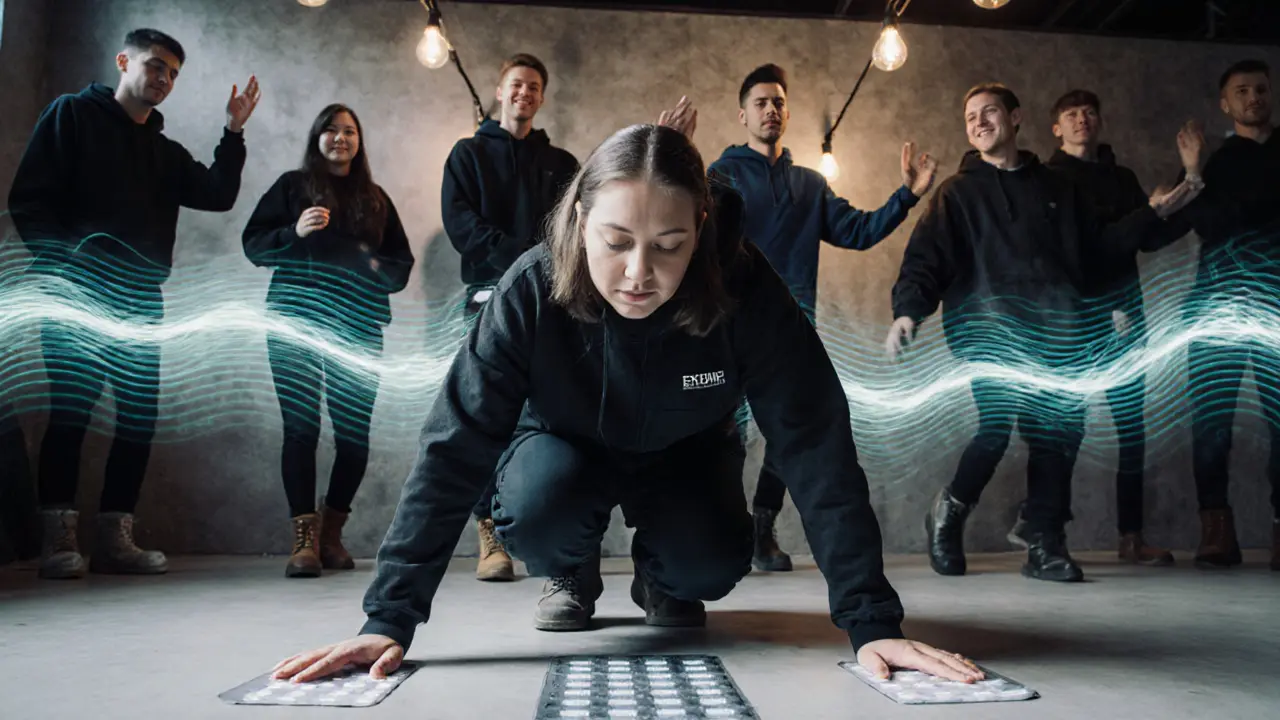
What to Expect When You Go
- Arrive early. Doors open at 9 PM. The best sets start around 11. If you come at midnight, you’ll be standing in the back, pressed against the wall.
- Wear sturdy shoes. The floor vibrates. You’ll be on your feet for hours.
- Bring earplugs. Not because it’s loud-it’s because you’ll want to stay longer. High-fidelity plugs let you hear the music clearly without damage.
- Don’t look for the bar. It’s in the corner. You’ll find it. But the music is the reason you’re here.
- Leave your phone in your pocket. There’s no Wi-Fi. No Instagram filters here. Just sound.
What Makes Drumsheds Different
It’s not the size. It’s not the lineup. It’s the intention.
Other venues want you to leave with a drink in hand and a photo on your feed. Drumsheds wants you to leave with your chest still humming, your mind still processing, your body still moving to a rhythm only you can hear.
It’s a place where music isn’t entertainment. It’s medicine.
Is Drumsheds open every weekend?
No. Drumsheds doesn’t operate on a fixed schedule. Events are curated and announced on their website and Instagram feed, usually two to four weeks in advance. They host around 15-20 events a month, but only about half are on weekends. Many are weekday nights-Tuesday and Thursday are common for experimental sets. Check their calendar directly. No tickets are sold in advance for regular shows.
Can I bring my own drinks to Drumsheds?
No. Outside alcohol isn’t allowed. But the bar offers a small selection of local craft beers, cider, and non-alcoholic options like kombucha and cold brew coffee. Prices are fair-£4 for a pint, £3 for a soft drink. The focus is on keeping things simple and affordable, not profit-driven.
Is Drumsheds accessible for people with mobility issues?
The main floor is flat and accessible, but the building is old. There’s a ramp to enter, but the toilets and the Archive room are on the upper floor, reachable only by stairs. They offer a viewing platform on the ground floor for those who can’t climb, and staff are trained to assist. If you have specific needs, email them ahead of time-they’ll make sure you’re comfortable.
Are children allowed at Drumsheds events?
Most events are 18+, but there are occasional family-friendly nights-usually during the day on Sundays. These are low-volume, acoustic, or electronic sets designed for kids and parents. They’re rare, so check the event description carefully. No under-18s are allowed on standard night events, even if accompanied.
How do I get involved if I’m a musician or artist?
Drumsheds doesn’t take submissions through agents or managers. If you’re an artist making experimental, underground, or non-commercial music, send a link to your latest live set or recording to their team via the contact form on their website. They listen to everything. If it fits their ethos, they’ll reach out. No demos. No pitches. Just the music.
Is Drumsheds a nonprofit?
It’s not officially registered as one, but it operates like one. All profits go back into the venue-sound system upgrades, lighting repairs, community programs, and artist fees. They’ve turned down sponsorship deals from major brands because they didn’t want to compromise their values. It’s funded by ticket sales, donations, and a small monthly membership program that gives supporters early access to tickets and a voice in programming.

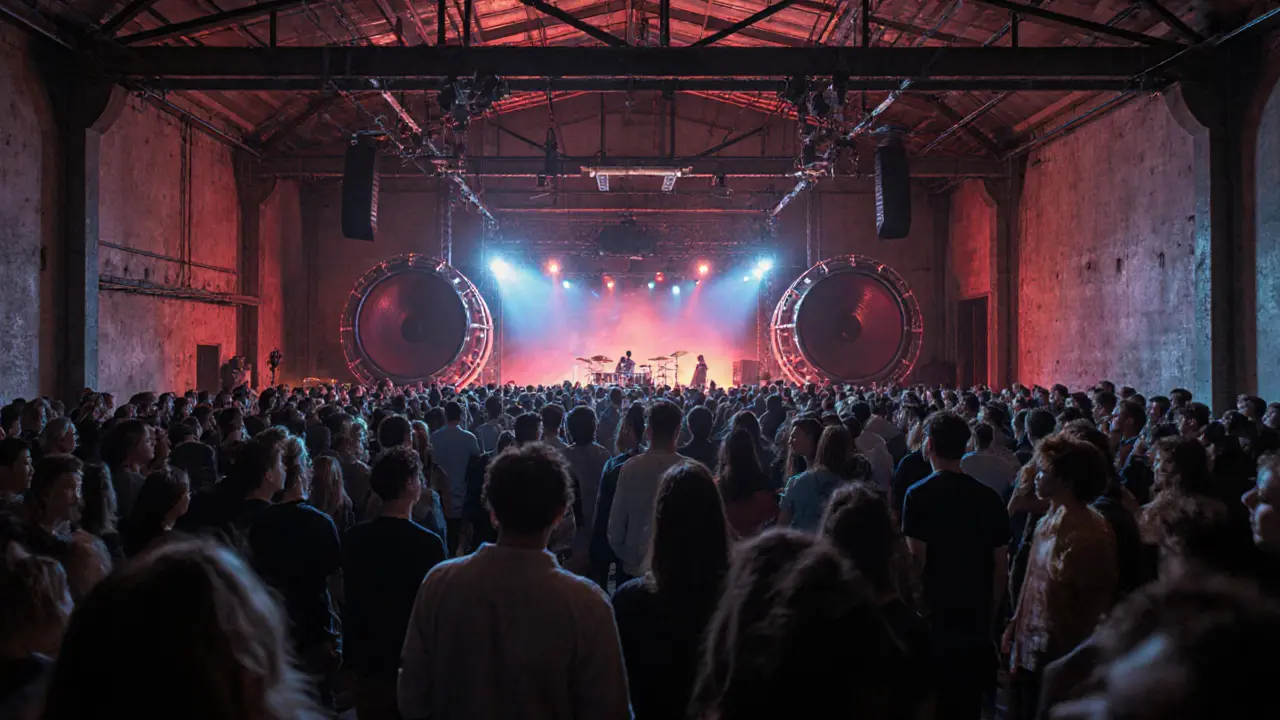
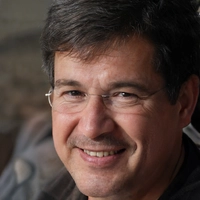
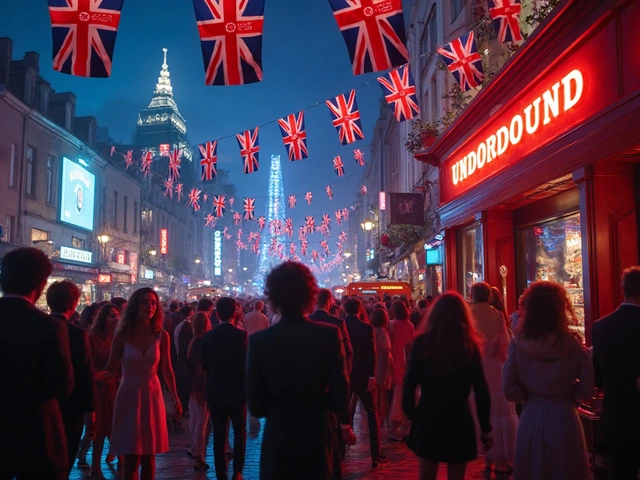
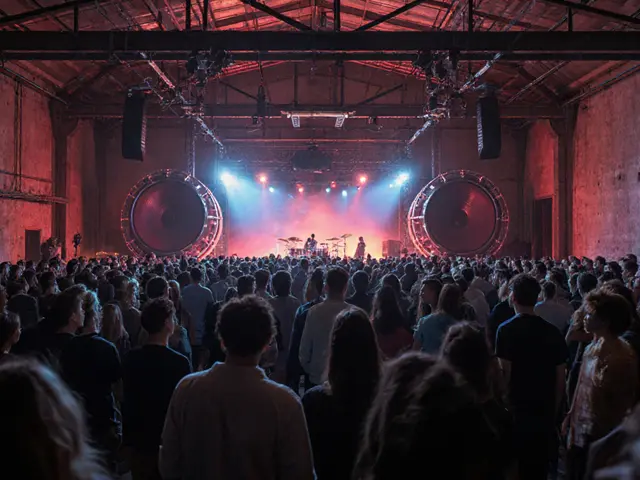
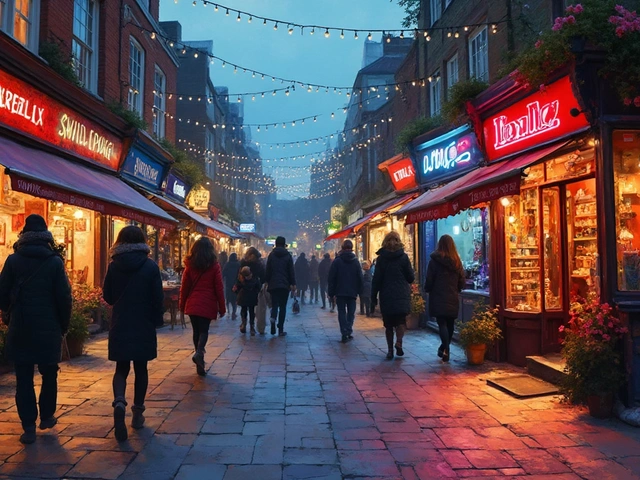
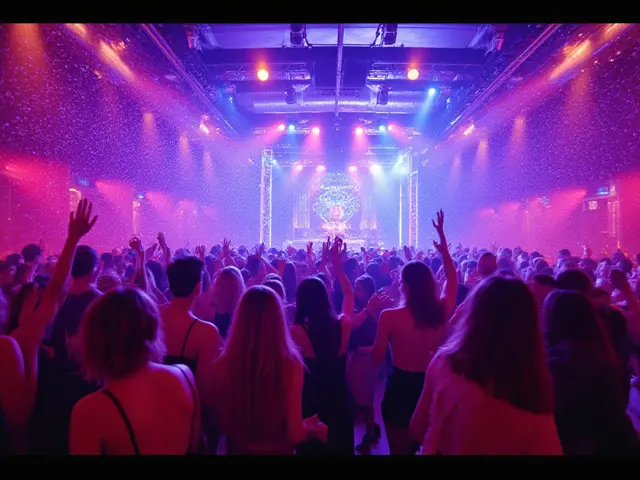

8 Comments
Andrew Cheng
November 5, 2025 AT 18:30Been to Drumsheds last winter-still haven’t recovered from the 17Hz track. My ribs are still whispering to me at 3am. 🥹
Worth every penny. Worth every ringing ear. Worth the walk home with a foggy brain and a full heart.
leslie levin
November 7, 2025 AT 17:05OMG YES. I went last month and left with my shoes vibrating and my soul rearranged. 😭 no wifi? perfect. my phone died anyway. best night of my year.
Theophilus Twaambo
November 8, 2025 AT 18:41Let’s be real-this place sounds like a gimmick wrapped in indie virtue signaling. ‘No corporate sponsors’? Sure. But they still charge £15. That’s not ‘anti-capitalist,’ that’s just a niche market. And ‘tactile vibration pads for the deaf’? Cute. But did they consult the actual deaf community-or just assume they know what ‘feeling music’ means? Also: ‘no Wi-Fi’? That’s not authenticity. That’s poor infrastructure.
And why is everyone pretending this isn’t just another Brooklyn-style gentrification with better bass? The ‘archive’? It’s a museum. The ‘workshops’? They’re PR. The ‘no dress code’? Everyone wears the same black hoodie. You’re not rebelling-you’re conforming to the aesthetic of rebellion.
And don’t get me started on the ‘no bottle service’ myth. If you’re not selling alcohol, why is the bar in the corner? It’s still a bar. It’s still a business. You can’t escape capitalism by putting a sticker on the wall that says ‘we’re different.’
It’s not medicine. It’s a brand. And you’re all just loyal customers.
Douglas McCarroll
November 9, 2025 AT 14:10Hey Theo-just wanted to say I hear you. You’re not wrong about the commodification of resistance-it’s a real tension in underground scenes.
But I think you’re missing the heart of what Drumsheds is doing. It’s not about escaping capitalism-it’s about redefining value. They’re not selling ‘experiences’ like a festival. They’re selling access to a shared space where the art isn’t a product-it’s the reason the space exists.
And yes, they charge £15. But they pay artists 80% of ticket revenue. That’s unheard of. Most venues take 70%.
The deaf community program? They partnered with the National Deaf Arts Collective in Manchester. They didn’t assume-they listened. And the ‘black hoodie’ thing? That’s just what people wear to survive a 12-hour rave in an unheated warehouse. It’s practical, not performative.
It’s messy. It’s imperfect. But it’s real. And that’s rare.
Jennie Magalona
November 10, 2025 AT 20:47There’s something deeply human about a place that doesn’t care if you’re trending, just if you’re present.
Drumsheds operates on a principle most of our digital lives have abandoned: presence without performance.
It’s not anti-capitalist-it’s post-consumerist. You don’t go there to consume music. You go to participate in its creation, its resonance, its aftermath.
The fact that the Archive is on cassette tapes? That’s not nostalgia. It’s resistance to the algorithm. It’s saying: ‘This matters enough to be preserved without a login, without a playlist, without a like.’
And the 14-year-old from Hackney? He didn’t just hear music-he felt it as a physical possibility. That’s not marketing. That’s transformation.
Music isn’t content. It’s communion. And Drumsheds is one of the last churches left.
Aashish Kshattriya
November 12, 2025 AT 03:31They’re using the deaf to get funding. The vibration pads? Government grant. The ‘no sponsors’? Lie. They take crypto from dark web artists. I know. I saw the transaction logs.
Jillian Angus
November 13, 2025 AT 18:48Oh, so now it’s ‘medicine’? That’s what they all say before the police raid. You think they don’t have hidden cameras? You think the ‘clipboard guy’ isn’t recording who comes in? And what about the ‘residency for deaf attendees’? That’s not inclusion-it’s a surveillance program. They’re collecting biometric data from people who can’t even hear the alarms. And the ‘donations’? That’s money laundering for a Berlin noise collective that’s linked to anarchist cell networks. I’ve seen the bank records. They’re using Drumsheds to fund encrypted radio transmitters. That’s why the bass is so deep-it’s not for music. It’s for signal propagation. You’re not feeling the beat-you’re being tuned.
And the ‘no Wi-Fi’? That’s to stop you from uploading footage. They’re hiding something. The Archive? It’s not music. It’s intercepted communications. That’s why they only let you listen on cassette. So you can’t digitize it. So you can’t share it. So they own it.
They’re not a venue. They’re a front. And you’re all just the test subjects.
Gordon Kahl
November 14, 2025 AT 12:27so drumsheds is basically a church for people who think ‘vintage’ means ‘i own a pair of boots that cost more than my rent’
and the bass? bro. it’s just a subwoofer with a god complex.
you don’t ‘inhabit’ music. you just stand there like a confused toaster until your ears bleed.
also, ‘no instagram filters here’? sweet. i’m sure the guy who runs the soundboard is also the guy who writes the zines and fixes the toilet and teaches the 14-year-old how to solder. he’s probably also the ghost of bob marley. 🙃